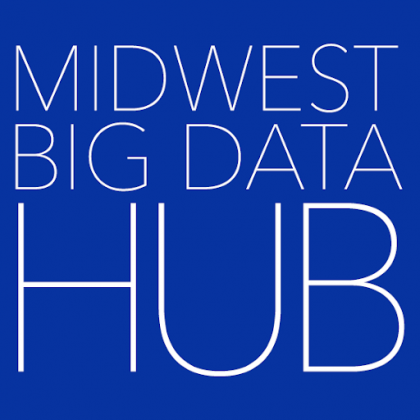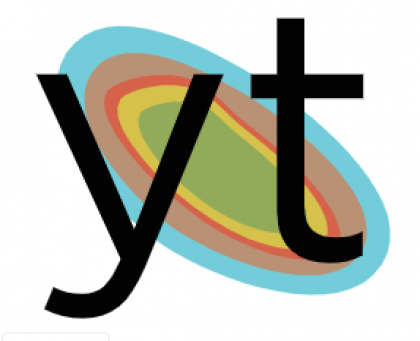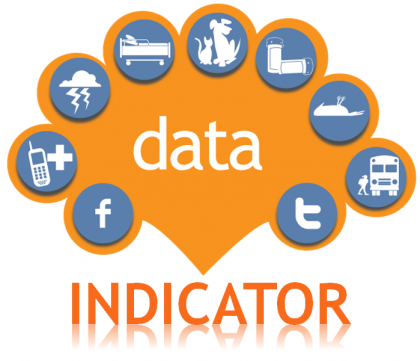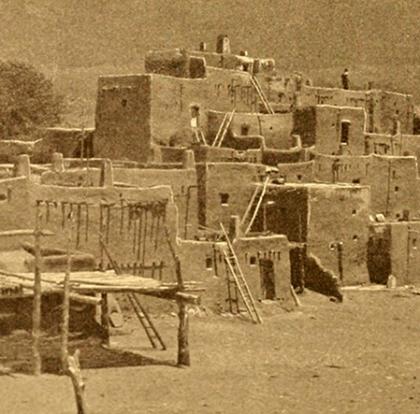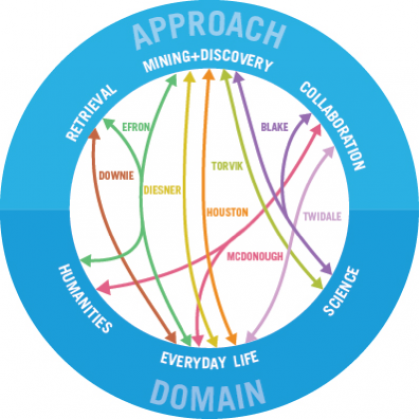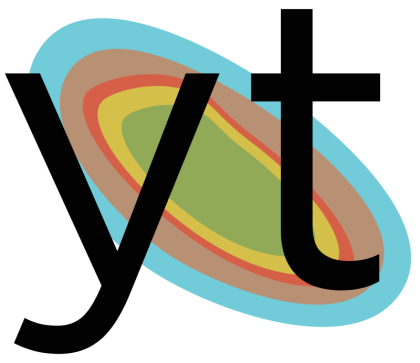Data Analytics and Human Centered Data
Using computational methods to transform both structured and unstructured data into actionable knowledge; and to understand and enable humans to explore and gain insight from vast data sets
Researchers Working in this Area
-
 Anita Say ChanProfessor
Anita Say ChanProfessor -
 Bertram LudäscherProfessor and Director, Center for Informatics Research in Science and Scholarship
Bertram LudäscherProfessor and Director, Center for Informatics Research in Science and Scholarship -
 Catherine BlakeProfessor
Catherine BlakeProfessor -
 David CharlesTeaching Assistant Professor
David CharlesTeaching Assistant Professor -
 Dong WangProfessor and Associate Dean for Research
Dong WangProfessor and Associate Dean for Research -
 Elizabeth WickesLecturer
Elizabeth WickesLecturer -
 Emily MaemuraAssistant Professor
Emily MaemuraAssistant Professor -
 Eunice E. SantosProfessor
Eunice E. SantosProfessor -
 Gowri Balasubramaniam
Gowri Balasubramaniam -
 Haohan WangAssistant Professor
Haohan WangAssistant Professor -
 Ian BrooksResearch Scientist and Director, Center for Health Informatics
Ian BrooksResearch Scientist and Director, Center for Health Informatics -
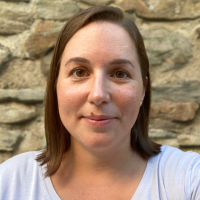 Ismini LourentzouAssistant Professor
Ismini LourentzouAssistant Professor -
 J. Stephen DownieProfessor, Executive Associate Dean, and Co-Director of the HathiTrust Research Center
J. Stephen DownieProfessor, Executive Associate Dean, and Co-Director of the HathiTrust Research Center -
 Jiangping ChenProfessor
Jiangping ChenProfessor -
 Jingrui HeProfessor and MSIM Program Director
Jingrui HeProfessor and MSIM Program Director -
 Jodi SchneiderAffiliate Associate Professor
Jodi SchneiderAffiliate Associate Professor -
 JooYoung SeoAssistant Professor
JooYoung SeoAssistant Professor -
 Kahyun ChoiAssistant Professor
Kahyun ChoiAssistant Professor -
 Matthew TurkAssociate Professor
Matthew TurkAssociate Professor -
 Michael TwidaleProfessor and Interim Associate Dean for Faculty Affairs
Michael TwidaleProfessor and Interim Associate Dean for Faculty Affairs -
 Nicola CarboniAssistant Professor
Nicola CarboniAssistant Professor -
 Nigel BoschAssociate Professor
Nigel BoschAssociate Professor -
 Ted UnderwoodProfessor
Ted UnderwoodProfessor -
 Vetle TorvikAssociate Professor and PhD Program Director
Vetle TorvikAssociate Professor and PhD Program Director -
 Yang WangProfessor
Yang WangProfessor -
 Yildiz EsenerTeaching Assistant Professor
Yildiz EsenerTeaching Assistant Professor -
 Yue GuoAssistant Professor
Yue GuoAssistant Professor -
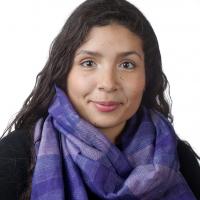 Zoe LeBlancAssistant Professor
Zoe LeBlancAssistant Professor

